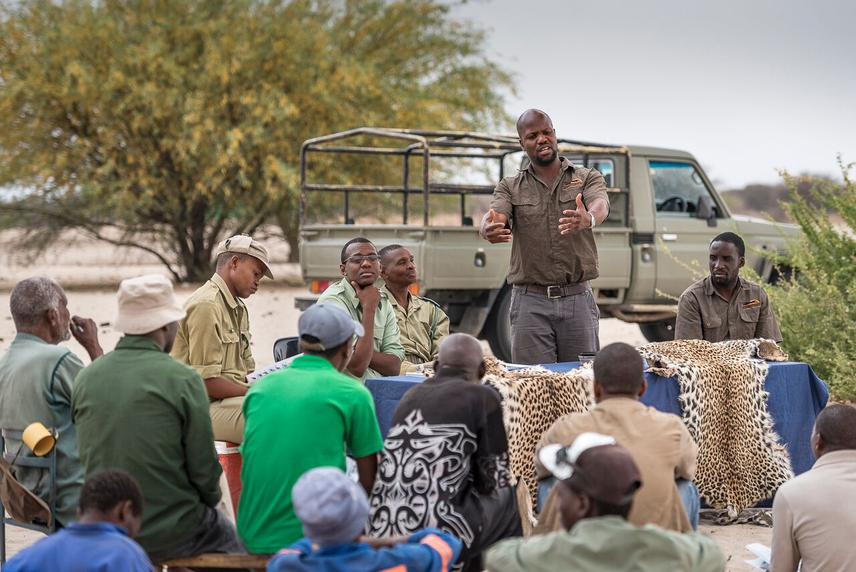Rebecca Klein
Other projects
23 Feb 2017
Developing Capacity to Utilise Guarding Dogs for Livestock Protection amongst Kalahari Farming Communities
Cheetah Conservation Botswana aims to preserve Botswana’s cheetah population through scientific research, community outreach and education, working with the rural communities to promote coexistence with Botswana’s rich diversity of predator species.

Phale Seele, mobile workshop at Kgonama
Botswana has one of the last viable, free-ranging populations in the world. Cheetah Conservation Botswana (CCB) is a long term conservation program focusing on reducing human predator conflict and improving the attitudes of rural communities and their methods of predator control. Cheetahs are wide ranging, low density predators which require huge areas to survive. Protected areas are not sufficient to conserve adequate populations. Therefore, conservation of the cheetah and all of Botswana’s predators, depends on the attitudes and actions of these farming communities. Through research, community outreach and education, CCB works to ensure the survival of Africa’s free ranging cheetah and its habitat, ensuring the spirit of the Kalahari, its wildlife and culture, remains for future generations.
Research – gather baseline and ongoing data about cheetah and other predators in Botswana in order to influence attitudes and actions and assess current farm management strategies and community perceptions.
Community Outreach – increase the understanding and importance of cheetahs and other predators amongst rural farming communities and promote the use of sustainable farm management practices to facilitate co-existence with predator species.
Education – teach Botswana’s future farmers and other citizens that healthy ecosystems include cheetahs and other predators, while building capacity in schools to teach predator conservation.
The cheetah acts as an ideal representative for the Kalahari ecosystem, especially outside of protected areas. As key habitat for cheetah survival, these areas are now a priority for their conservation. Currently, such areas are becoming increasingly overgrazed, bush encroached and badly managed. Livestock production is not effective and wildlife populations continue to suffer and gradually decline, along with this predator conflict increases. As more land is utilized for livestock operations the likelihood of predators encountering livestock increases. As prey populations decrease, predators are more likely to seek out alternative food sources. Eventually, conflict will reach such levels that coexistence will be increasingly difficult. However, there are alternatives to this scenario. Effective farm management can ensure the maintenance of prey populations on the land. Proper livestock management can ensure good fertility and returns, while maintaining adequate grazing and reducing predator conflict.
Therefore, Cheetah Conservation Botswana is working to improve the methods of livestock farming utilised by rural communities and encourage the use of effective management and non lethal methods of predator control. As well as, introducing alternative livelihoods which could be effective in giving predator species a value and encourage responsible environmental stewardship.